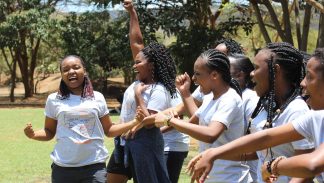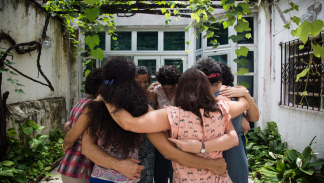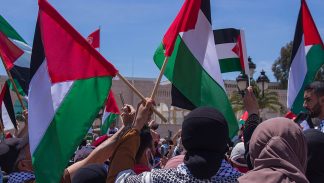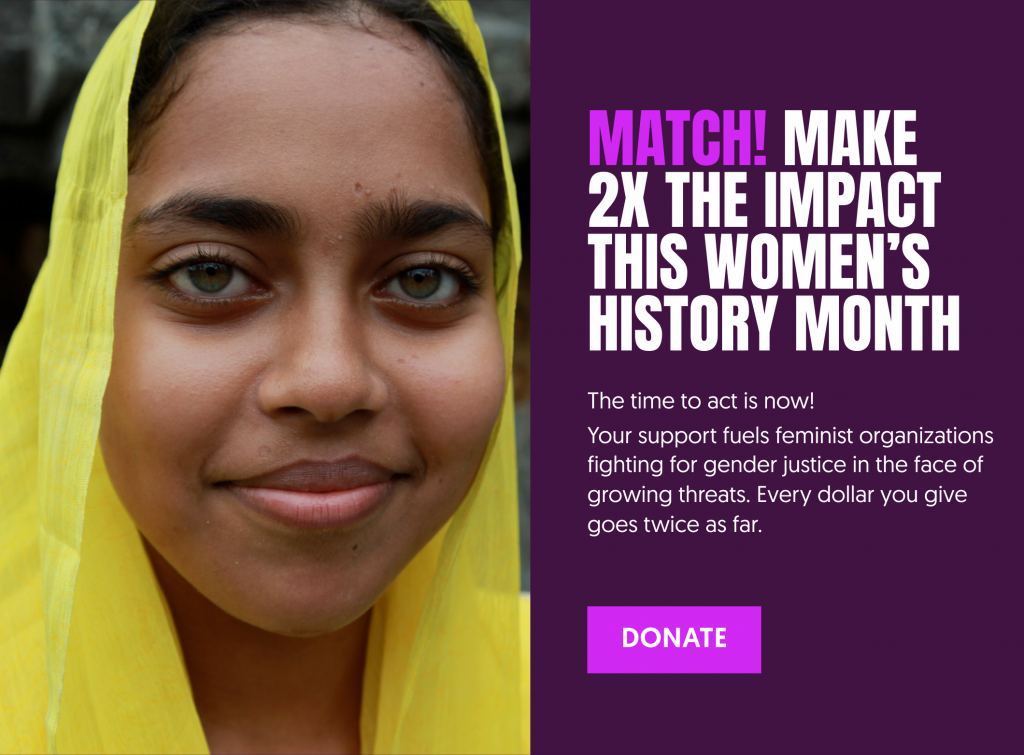Building a Wave of Young Women Leaders in South Asia
Young women leaders are not the future—they are what we need now. But without the necessary resources of knowledge, networks, movement strengthening skills, and mentorship, they’re unable to jumpstart their fresh and energetic ideas for transformative social change off the ground. More importantly, few opportunities exist for young women leaders to engage with the generation of women’s rights activists before them, often excluding their voices and collective power from established women’s movements. The issues young women face in having sustained and meaningful engagement with women’s movements is the underlying principle upon which the South Asia Young Women’s Leadership and Mentoring initiative was formed.
Global Fund for Women, in collaboration with our partner organization CREA and granted by the Kendeda Fund, designed a three-year $2.9 million innovative initiative to support and strengthen the leadership of 30 young women in Bangladesh, India and Nepal across their organizations, communities, and movements. The goal? Stronger and more sustainable movements of social change led by a new generation of young women across South Asia.
Teams of mentors in each country will accompany the young women over the next three years in their journey of self-discovery and empowerment. By investing in their capacity and potential, strengthening their support infrastructure, and building strong, long-lasting intergenerational relationships of coaching and exchange, we aim to create a resilient cohort of young women leaders who can carry the women’s movement forward in South Asia.
This summer, the young women leaders and mentors all met for the first time for a transformative week of learning and growth while overlooking the scenic mountains of Kathmandu, Nepal. The first Training of Trainers and solidarity-building workshop for the initiative took place from July 9 – 15th and was led by CREA. During this intense, exhilarating and powerful week, the workshop included sessions on understanding power, patriarchy, feminism, movement building and feminist leadership. The young women reflected on their personal journeys of embarking in feminist activism, the challenges they’ve faced in overcoming deeply entrenched patriarchy in their communities, and exploring what being a young women leader means not only as part of their identity but also for the movements they are a part of—and hope to lead.
We all were especially struck by the session focused on developing a deeper understanding of the dynamics of power to build women’s leadership. Power is at the heart of all forms of inequality—manifesting in ways that either give us strength or keep us down. But most of us don’t see the hidden and invisible ways in which power works, in public and private spaces, but also deep within ourselves. We were challenged to think critically about our own relationship and experience with power both in our personal lives and work as feminist activists—reflecting on the important questions of: When do I feel powerful? When have I felt powerless? How have I exercised and asserted my power over others?
The workshop not only fostered a safe space for honest and critical self-reflection but also for the young women to learn from their mentors and about each other’s work as they embark on their journey together to find their inner strength and confidence as leaders—forging a sisterhood that transcended language barriers and cultural differences. A key part of the initiative’s design is a model of mentorship, coaching, and peer learning that bridges current gaps between older and younger feminist activists and between young activists themselves, in order to break isolation, build solidarity, foster mutual learning and support, and enhance sustainability of movements.
Arundhati Aridhar, a young women leader from India working with Area Networking and Development Initiatives (ANANDI) initially went into the workshop anxious that her words and ideas would get lost in translation among her Nepali and Bangladeshi peers who didn’t speak Hindi. Despite these differences, unlikely bonds were quickly formed. She says, “I’ve come to realize that there are certain experiences that we have as young women…we’ve gone through similar histories within our countries. I think that has shaped a lot of who we’ve become and the challenges we face today. As young women, as sisters, daughters, wives, mothers. I think that aspect has really bound us together. I find that so many strategies that we are discussing…all of that becomes really fertile for laying a foundation for what I think really has a potential to become a movement in this part of the world. It’s exciting to meet other women who are going to take that journey with you and you know you’re not alone.”
Throughout the week, the mentors worked closely with the young women leaders in learning more about strategies of movement building and feminist leadership, as well as developing their project plans aimed to build the leadership of other young women in their communities. Reflecting on her interactions with the young women leaders in the workshop and her role as mentor, Sadhana Shrestha—former Executive Director of Tewa and established women’s rights activist in Nepal—says:
“Leadership and mentorship are, I think, a process. I’m very excited that I am part of this beautiful journey that is going to create this big wave of change in history, with these young feminists who are not just learning the concepts and then leaving go back to their other work, but will build in what they learn, within their worlds, and within themselves. What I’m seeing in them, I am also seeing in me. I can already see those changes in me in these two trainings that we’ve had. I am here to learn with them, to bring that shift in organizations, in thinking, in individuals, in myself, so we can address the core problems. That’s where I think the real excitement lies.”
The young women leaders were left feeling empowered, inspired, and energized by the discussions and connections built with their sisters in the movement. These conversations will continue as the initiative unfolds and the young women begin their journey of asserting their power and voice—growing and leading movements that nurture their ideas and realize their vision for social change.
A young women leader should build solidarity and believe in sisterhood. She should have love inside her for humanity and the passion to grow a movement for the empowerment of women in every aspect.Iffat Ara Arna, Young Women Leader working with Naripokkho in Bangladesh



